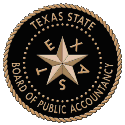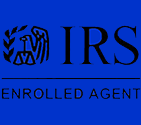Penalties and Interest Reduction
Unique Solutions to Your IRS Problems
Guaranteed*
Over 3000 Satisfied Customers Since 1980
Why Choose Us?
Held To Highest Standard

Knows the IRS Inside and Out

IRS Problems, Tax Problems, Tax Accountants, IRS Tax Attorneys, Tax Relief Help CPA, In Houston, Texas.
“Solving IRS problems has been my life’s work. After 30 years and 1,000’s of successful tax cases I can safely say, “I know the IRS Business like the back of my hand”. How would you like to never worry about the IRS again? Let my past knowledge and experience work for you”
– Joe Mastriano, CPA
Joe is a member of the Sugar Land Rotary, whose mission includes promoting integrity, fellowship, and good will.
Free Evaluation
What Our Clients Say About Us
Let Our Accounting Firm Help You Solve All Your IRS Problems…
Free Evaluation
I know a way for the IRS to always take penalties off. All I have to do is give them a half way reasonable excuse. In most situations they will take it off. Knowledge really is power.
Free EvaluationPenalties And Interest Reductions – The Truth About The Solution By Joe Mastriano, CPA.
There are a lot of false promises by firms being made to consumers by representatives concerning penalty and interest reduction. Many people use that as a way to justify paying representation fees.” If you can save me $20,000. of interest and penalties, I will gladly pay you $2,000.” is an example. Unfortunately, interest is hardly ever waived, and penalties are not waived nearly as often as people are led to believe. Negotiations can be difficult without the right experienced defense.
Reducing IRS Penalties On Late Tax Returns Or Paying Late
Removing penalties on your first late personal tax return Form 1040 should be easy IRS fix. It’s pretty much a given. After you pay the liability you can call and request a penalty removal. Just advise them that you forgot to file on time, or thought that you did. Or you could fill out Form 843 claim for refund. I would still try to prove reasonable cause and not willful negligence was the reason. This also applies to paying old, late taxes.
You may use Form 843 for any years of personal returns, or other returns that you want to claim a penalty abatement for.
Reducing Interest
Interest is charged when there is a balance due. When a tax liability is reduced or abated, the corresponding interest will be too. When a penalty is abated, the interest on that penalty must be abated too. Interest can be abated if it can be shown that it is attributable in whole or in part to an unreasonable error or delay by an officer or employee of the IRS. You have to prove…
a) That the error or delay occurred in connection with ‘a procedural or mechanical act’ or a ‘managerial act’ associated with the case.
b) The error or delay occurred after the IRS contacted the taxpayer ‘in writing’ about the case.
c) No ‘significant aspect’ of the error or delay can be attributed to the taxpayer’s actions.
If you want to request relief of interest charged due to an error or delay I encourage you to do so. I have never attempted to do this given the IRS posture in defending these claims. It is hard to hire an honest practitioner to justify charging the fees necessary to defend this, given the odds against it. You of course can try this on your own without legal advise. I would look further into how cases are settled and what the taxpayer advocate has to say about it. A lot of research will be necessary. You can always appeal a decision against you if the facts are in your favor.
The Three Ways To Reduce Your Tax Liability In General Are:
a) Pull your record of account and make sure the IRS has recorded your payments. Make sure if they removed any penalties they took off the related interest. Make sure you file original returns for any years that they filed a SFR (substitute for return). Make sure you file original reports for any payroll report, under code 6020b that the IRS filed.
b) Amend any returns that you think are not correct. Submit proof with the return and your copy of new return and the amended version. Do not be afraid of an audit by doing this. Submitting your documentation will prove your case, so they will see little chance in auditing you.
c) Apply for penalty abatement according to the instructions in this site.
Have You Been Notified That You Are Getting Audited?
Avoid a big assessment and the penalties and interest that go along with it. A federal tax audit usually begins by receiving a certified letter stating that your return or a group of returns have been selected for review. Receiving such letters can be very scary especially if you are not sure of how your return was prepared or you realize you do not have all documentation (such as no receipts) to show all that was reported. Just because you receive notification that the IRS is auditing you it does not mean your return is wrong. Sometimes perfect returns still set off audit triggers.
If the IRS is auditing you it can be very stressful and a lot of work. A taxpayer that represents themselves can cause a lot of damage if they do not know what they are doing. Especially when penalties and interest is added to the amount owed. You may even be charged substantially for fraud penalties. You should always hire experienced consultants to deal with IRS strategies, audit tips and audit results.
Everyone has heard horror stories about being IRS audited. Audit timing is never when you want it and you never want to find yourself with IRS debt, chances of garnished wages and/or and intend to levy. If you have been audited and it was not in your favor you can hire help for an audit reconsideration.
IRS Levies and Liens
If you have not been levied, but have received a notice of intent to levy, you must act immediately. You will only have a short time to hire legal help and begin negotiations before the IRS will garnish your wages. There are many reasons a taxpayer can find themselves with a tax levy notice. Finding the best way to stop the levy of your bank account will depend on your financial situation. Sometimes the IRS makes mistakes. If that’s the case, you should appeal and dispute the assessment.
Once the IRS has levied your wages it’s easy to lose hope. However, the wage garnishment can be beat. Even if the IRS has started to levy your paycheck there are ways you can stop the collections and negotiate a better settlement agreement. Try to get the IRS to stop wage garnishments. Do not attempt this alone. Dealing with the IRS can be scary, also disastrous if you make the wrong moves. Hire an Enrolled Agent (EA), attorney or tax professional that specializes in taxation law and tax debt resolution. If you do not pay your taxes or settle back tax debt, when doing an installment agreement, the IRS can legally seize your assets.
The IRS can and will review bank statements in all bank accounts for the last several months. They can pull credit reports to find out your other monthly payments. I’m sure you have seen tax law firm commercials that mention someone that had their tax debt cut drastically, this is usually not the truth. It is your best interest to hire an experienced Certified Public Accountant or lawyer to solve your IRS trouble.
When the IRS decides you owe taxes they can put a claim on your property. This claim is called an IRS tax lien.
Corporate tax cases can be more difficult to resolve. You need a pro defender to deal with these issues.
Payroll Taxes
The IRS uses enforced collection when it comes to unpaid payroll taxes (including trust fund) and unfiled payroll returns. The IRS can include a levy on the assets of the business, they can also close a business for nonpayment of payroll taxes. If the business is closed or files bankruptcy the IRS will go after the owner of the business for collection of penalties and interest on your old years taxes and trust fund.
For more information on your penalties and interest reduction possibilities, please see the IRS Appeals page.
If you are considering hiring us, call Joe Mastriano, CPA 713-774-4467.
Think your IRS matter is handled? Think again!
For your analysis, click here to contact us.